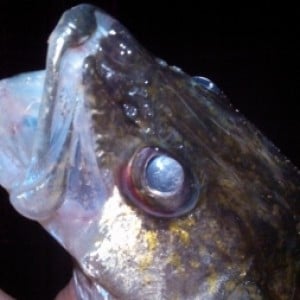During the season I’ll give a shot of WD 40 on my reels. There’s no doubt the smell transfers to some of the line. Do you guys think that smell stays on the line and the fish can smell it? Would it adversely affect the bite?
IDO » Forums » Fishing Forums » General Discussion Forum » WD 40 on Reels
WD 40 on Reels
-
 nhammInactiveRobbinsdalePosts: 7348March 27, 2018 at 9:17 pm #1763191
nhammInactiveRobbinsdalePosts: 7348March 27, 2018 at 9:17 pm #1763191Why WD-40? What are you trying to do with it?
It’s not really a lubricant, more a water displacement (WD) agent.
I’ve read plenty of fishing stuff of old timers using it as fish attractant, recently, I don’t know.
March 27, 2018 at 9:28 pm #1763197We used to spray it on bait as kids, not sure if it helped or not, but now I’m not sure I’d want to add more crap to the water. Is Reel Magic something that would suit the OP better? Then again it may have the same pollutants
March 27, 2018 at 9:40 pm #1763201Reels get a little gummed up and it’s a quick fix instead of pulling them all apart. I just had this reel in Mexico so it was in salt water. Gave it a couple a shots to make sure there nothing was corroding the parts.
March 28, 2018 at 7:18 am #1763248It’s not really a lubricant, more a water displacement (WD) agent.
It’s 25% oil. Its a lubricant! Brake cleaner is a better at water displacement.
I don’t think it would hurt the bite. I know tourney guys who still hit the crank with a shot of WD40 on some bodies of water.
-J.
March 28, 2018 at 7:36 am #1763255I’ve hear it was made with fish oil years back and that is why people used it as an attractant, but I don’t believe that is the case any more. In any case I doubt it will hurt the bite any if some transfers to your line from the reel.
March 28, 2018 at 7:55 am #1763258It’s a lubricant carried in a solvent. I’m not against doing it, but in the long run your reels need to be properly taken apart and greased/oiled every 1-3 years depending on use.
March 28, 2018 at 8:14 am #1763269Why WD-40? What are you trying to do with it?
It’s not really a lubricant, more a water displacement (WD) agent.
I’ve read plenty of fishing stuff of old timers using it as fish attractant, recently, I don’t know.
Just need to use the RIGHT WD40 ,,,,,,,,,,, One that is designed as a lubricant. They make WD40 grease too!
WD-40® SPECIALIST® WATER RESISTANT SILICONE LUBRICANT
safely lubricates, waterproofs and protects metal and non-metal surfaces, including rubber, plastic and vinyl better than leading competitors. Our silicone spray dries fast and leaves a clear, non-staining film that doesn’t stick or make a mess, so it won’t attract dirt. Effective in a temperature range from -100°F to 500°F, it’s ideal for use on cables, pulleys, guide rails, valves, linkages, hinges, locks and more, and is 50-state VOC compliant.
https://www.wd40specialist.com/products/silicone-lubricant/
March 28, 2018 at 8:26 am #1763275It’s a lubricant carried in a solvent. I’m not against doing it, but in the long run your reels need to be properly taken apart and greased/oiled every 1-3 years depending on use.
Agreed – I use it as a quick fix in lieu of pulling the reels apart and going through them.
March 28, 2018 at 8:31 am #1763279Sure works great for removing the gummy stuff off that is on the back of tags, ect.
 saugeye-steve
Posts: 293March 28, 2018 at 9:16 am #1763292
saugeye-steve
Posts: 293March 28, 2018 at 9:16 am #1763292I was sent this the other day.
All you need to know about WD-40What is the Main Ingredient of WD-40?
Before you read to the end, does anybody know what the main ingredient in WD-40 is?
No Cheating…..WD-40 ~ Who knew!
I had a neighbor who bought a new pickup.
I got up very early one Sunday morning and saw that someone had spray painted red all around the sides of this beige truck (for some unknown reason).
I went over, woke him up, and told him the bad news.
He was very upset and was trying to figure out what to do … probably nothing until Monday morning, since nothing was open.Another neighbor came out and told him to get his WD-40 and clean it off.
It removed the unwanted paint beautifully and did not harm his paint job that was on the truck. I was impressed!
WD-40 who knew?
“Water Displacement #40”The product began from a search for a rust preventative solvent and de-greaser to protect missile parts.
WD-40 was created in 1953, by three technicians at the San Diego Rocket Chemical Company.
Its name comes from the project that was to find a ‘Water Displacement’ Compound.They were finally successful for a formulation, with their fortieth attempt, thus WD-40. The ‘Convair Company’ bought it in bulk to protect their atlas missile parts.
Ken East (one of the original founders) says there is nothing in WD-40 that would hurt you.When you read the ‘shower door’ part, try it.
It’s the first thing that has ever cleaned that spotty shower door.If yours is plastic, it works just as well as on glass.
It’s a miracle!
Then try it on your stove-top.
It’s now shinier than it’s ever been.
You’ll be amazed.
WD-40 Uses:
1. Protects silver from tarnishing.
2. Removes road tar and grime from cars.
3. Cleans and lubricates guitar strings.
4. Gives floor that ‘just-waxed’ sheen without making them slippery.
5. Keeps the flies off of Cows, Horses, and other Farm Critters, as well. (Ya gotta love this one!!!)
6. Restores and cleans chalkboards.
7. Removes lipstick stains.
8. Loosens stubborn zippers.
9. Untangles jewelry chains.
10. Removes stains from stainless steel sinks.
11. Removes dirt and grime from the barbecue grill.
12. Keeps ceramic/terracotta garden pots from oxidizing.
13. Removes tomato stains from clothing.
14. Keeps glass shower doors free of water spots.
15. Camouflages scratches in ceramic and marble floors.
16. Keeps scissors working smoothly.
17. Lubricates noisy door hinges on both home and vehicles doors.
18. It removes that nasty tar and scuff marks from the kitchen flooring. It doesn’t seem to harm the finish and you won’t have to scrub nearly as hard to get them off. Just remember to open some windows if you have a lot of marks.
19. Remove those nasty bug guts that will eat away the finish on your car if not removed quickly!
20. Gives a children’s playground gym slide a shine for a super fast slide.
21. Lubricates gearshift and mower deck lever for ease of handling on riding mowers.
22. Rids kids rocking chair and swings of squeaky noises.
23. Lubricates tracks in sticking home windows and makes them easier to open.
24. Spraying an umbrella stem makes it easier to open and close.
25. Restores and cleans padded leather dashboards in vehicles, as well as vinyl bumpers.
26. Restores and cleans roof racks on vehicles.
27. Lubricates and stops squeaks in electric fans
28. Lubricates wheel sprockets on tricycles, wagons, and bicycles for easy handling.
29. Lubricates fan belts on washers and dryers and keeps them running smoothly.
30. Keeps rust from forming on saws and saw blades, and other tools.
31. Removes grease splatters from stove-tops.
32. Keeps bathroom mirror from fogging.
33. Lubricates prosthetic limbs.
34. Keeps pigeons off the balcony (they hate the smell).
35. Removes all traces of duct tape.
36. Folks even spray it on their arms, hands, and knees to relieve arthritis pain.
37. Florida’s favorite use is: ‘cleans and removes love bugs from grills and bumpers.’
38. The favorite use in the state of New York , it protects the Statue of Liberty from the elements
39. WD-40 attracts fish. Spray a little on live bait or lures and you will be catching the big one in no time. Also, it’s a lot cheaper than the chemical attractants that are made for just that purpose. Keep in mind though, using some chemical laced baits or lures for fishing are not allowed in some states.
40. Use it for fire ant bites. It takes the sting away immediately and stops the itch.
41. It is great for removing crayon from walls. Spray it on the marks and wipe with a clean rag.
42. Also, if you’ve discovered that your teenage daughter has washed and dried a tube of lipstick with a load of laundry, saturate the lipstick spots with WD-40 and re-wash. Presto! The lipstick is gone!
43. If you spray it inside a wet distributor cap, it will displace the moisture, allowing the engine to start.
P.S. As for that Basic, Main Ingredient…….
Well…. it’s FISH OIL…March 28, 2018 at 9:34 am #1763299P.S. As for that Basic, Main Ingredient…….
Well…. it’s FISH OIL…Fish Oil is NOT an ingredient in WD-40. This is another urban legend that has been around for a long time.
WD-40’s main ingredients, according to its U.S. Material Safety Data Sheet* information, are:
· 51% Stoddard solvent (i.e., mineral spirits: primarily hexane, somewhat similar to kerosene)
· 25% Liquefied petroleum gas (presumably as a propellant; carbon dioxide is now used instead to reduce WD-40’s considerable flammability)
· 15+% Mineral oil (light lubricating oil)
· 10-% Inert ingredients-J.
 Karry Kyllo
Posts: 1416March 28, 2018 at 9:38 am #1763300
Karry Kyllo
Posts: 1416March 28, 2018 at 9:38 am #1763300Fish Oil as the main ingredient in WD-40 is a myth.
The ingredients of WD-40, according to U.S. Material Safety Data Sheet information, are:
•50% “aliphatic hydrocarbons”. The manufacturer’s website specifically claims that this fraction in the current formulation cannot be accurately referred to as Stoddard solvent, a similar mixture of hydrocarbons.[8]
•<25% petroleum base oil, presumably a mineral oil or light lubricating oil.
•12-18% low vapor pressure aliphatic hydrocarbon, to reduce the viscosity for use in aerosols. This fraction evaporates during application.
•2-3% carbon dioxide, presumably as a propellant, is now used instead of liquefied petroleum gas to reduce WD-40’s considerable flammability.
•<10% inert ingredients.It’d be considered a pollutant if sprayed on lures and dispersed in lakes or rivers.
 saugeye-steve
Posts: 293March 28, 2018 at 9:38 am #1763301
saugeye-steve
Posts: 293March 28, 2018 at 9:38 am #1763301Fish Oil is NOT an ingredient in WD-40. This is another urban legend that has been around for a long time.
Another IDO expert responds.
Knows more than the people who created it.This site sometimes cracks me up.
 saugeye-steve
Posts: 293March 28, 2018 at 9:40 am #1763302
saugeye-steve
Posts: 293March 28, 2018 at 9:40 am #1763302Ken East (one of the original founders) says there is nothing in WD-40 that would hurt you.
 Karry Kyllo
Posts: 1416
Karry Kyllo
Posts: 1416 nhammInactiveRobbinsdalePosts: 7348March 28, 2018 at 9:45 am #1763307
nhammInactiveRobbinsdalePosts: 7348March 28, 2018 at 9:45 am #1763307I’ve got 3-4 of the wd line of “lubes”. Not impressed by any of em. Wouldn’t be spraying em on my reels just for that reason.
 saugeye-steve
Posts: 293March 28, 2018 at 9:47 am #1763308
saugeye-steve
Posts: 293March 28, 2018 at 9:47 am #1763308So you’re saying the MSDS for WD-40 isn’t correct?
When did you read it?
March 28, 2018 at 9:51 am #1763313Ken East (one of the original founders) says there is nothing in WD-40 that would hurt you.
Go ahead and brush your teeth with it for a month. Let us know how that works out for you.

-J.
 saugeye-steve
Posts: 293March 28, 2018 at 9:53 am #1763319
saugeye-steve
Posts: 293March 28, 2018 at 9:53 am #1763319Go ahead and brush your teeth with it for a month. Let us know how that works out for you.
-J.
Thats ok-i use toothpaste.(all natural)
Thats what it was designed for.March 28, 2018 at 10:03 am #1763322<div class=”d4p-bbt-quote-title”>Karry Kyllo wrote:</div>
So you’re saying the MSDS for WD-40 isn’t correct?When did you read it?
It is available right on their (WD40) web page.
LVP Petroleum Solvent, Petroleum Solvent, Petroleum Base Oil, Carbon Dioxide.
NOTE; it says petroleum base oil, NOT fish oil.
 Karry Kyllo
Posts: 1416March 28, 2018 at 10:03 am #1763323
Karry Kyllo
Posts: 1416March 28, 2018 at 10:03 am #1763323Do you know what a MSDS is or the purpose of a MSDS?
Directly from the manufacturer: This product is classified as harmful to aquatic life. Releases to the environment should be avoided.
March 28, 2018 at 10:12 am #1763332Another IDO expert responds.
Knows more than the people who created it.This site sometimes cracks me up.
you’re seriously going to say the SDS is incorrect and your mythical copy-paste post is? You’re right, this site does crack me up sometimes…
The most recent updated SDS for WD-40 was July 20, 2014. I was so curious that I grabbed the SDS book behind me and flipped to the WD-40 page, as we use that in our facility. The numbers John gave are factual and correct, your statement is, however, not….
 March 28, 2018 at 10:14 am #1763333
March 28, 2018 at 10:14 am #1763333Do you know what a MSDS is or the purpose of a MSDS?
Directly from the manufacturer: This product is classified as harmful to aquatic life. Releases to the environment should be avoided.
Actually, that’s incorrect too. Copy and paste from the SDS below.
Ecotoxicity: No specific aquatic toxicity data is currently available, however components of this product are
not expected to be harmful to aquatic organismsMarch 28, 2018 at 10:17 am #1763336Do you guys think that smell stays on the line and the fish can smell it?
Not an expert and its just what I have read but the consistency of the oil makes it hard for fish to detect it. Essentially the oil droplets are to large. Anything released into the water I would gather it would float to the top of the water. What happens from there I couldn’t guess.
March 28, 2018 at 10:20 am #1763338Ken East (one of the original founders) says there is nothing in WD-40 that would hurt you.
I copied this from their website.
MYTHS, LEGENDS & FUN FACTS
Myth: WD-40® contains fish oil.
Fact: Consumers have told us for years that they’ve caught some of the biggest fish ever after protecting their fish hooks and lures with WD-40®. We believe this legend came from folks assuming the product must contain fish oil since it appears to attract fish. Sorry Charlie®, it just ain’t so. Learn more
Myth: Ken East is WD-40®’s original founder.
Fact: While Ken East is often referred to as one of WD-40® ’s original founders, he used to say, “Heck, I ain’t that old.” Ken was the facility manager at WD-40 Company’s San Diego headquarters and was affectionately known as “The Brewmaster.” He mixed up batches of our secret sauce for over 15 years and was often heard to proudly proclaim, “I absolutely LOVE my job!” Ken happily retired in 2009.
As mentioned in our corporate and brand history, Norm Larsen, founder of Rocket Chemical Company, is considered the original founder of WD-40®. Read the real story behind WD-40®.
March 28, 2018 at 10:24 am #1763339<div class=”d4p-bbt-quote-title”>Karry Kyllo wrote:</div>
Do you know what a MSDS is or the purpose of a MSDS?Directly from the manufacturer: This product is classified as harmful to aquatic life. Releases to the environment should be avoided.
Actually, that’s incorrect too. Copy and paste from the SDS below.
Ecotoxicity: No specific aquatic toxicity data is currently available, however components of this product are
not expected to be harmful to aquatic organismsBOTH of those quotes are partial quotes of the MSDS. BOTH statements follow one another, in the same section, on page 4 (of 5 pages) in the MSDS sheet.
 Karry Kyllo
Posts: 1416March 28, 2018 at 10:24 am #1763340
Karry Kyllo
Posts: 1416March 28, 2018 at 10:24 am #1763340All the ingredients aren’t classified as harmful to aquatic life but the Petroleum Base Oil is classified as harmful. Since every shot of WD-40 contains Petroleum Base Oil, this makes WD-40 harmful to aquatic life as well.
Here’s a direct copy and paste of the whole section.
Ecotoxicity: Petroleum Solvent: 96 hr LC50 Fathead minnows – 45 mg/L (flow through)
LVP Petroleum Solvent: No ecotoxicity data available. Not expected to be harmful to aquatic organisms.
Petroleum Base Oil: 96 hr LC50 Rainbow trout – >5000 mg/L
This product is classified as harmful to aquatic life. Releases to the environment should be avoided
Persistence and Degradability: No data available.
Bioaccumulative Potential: No data available.
Mobility in Soil: No data available
Other Adverse Effects: None knownMarch 28, 2018 at 11:02 am #1763355Are we looking at the July 20, 2014 version? That is the most current and it has no mention of any of that under ecotoxicity…
https://www.wd40company.com/files/pdf/sds/mup/wd-40-multi-use-product-aerosol-sds-us-ghs-7-20-14.pdf
You must be logged in to reply to this topic.

